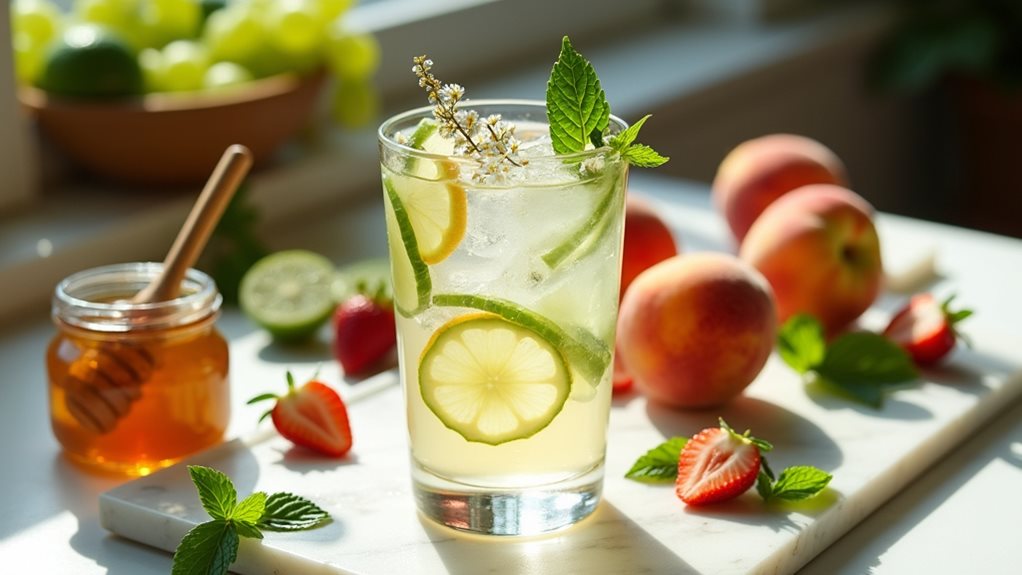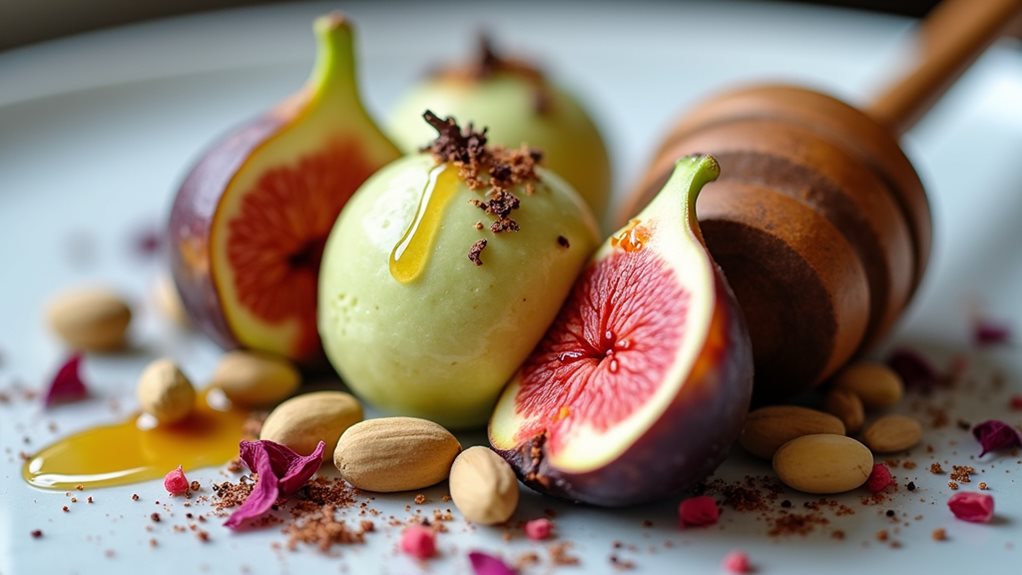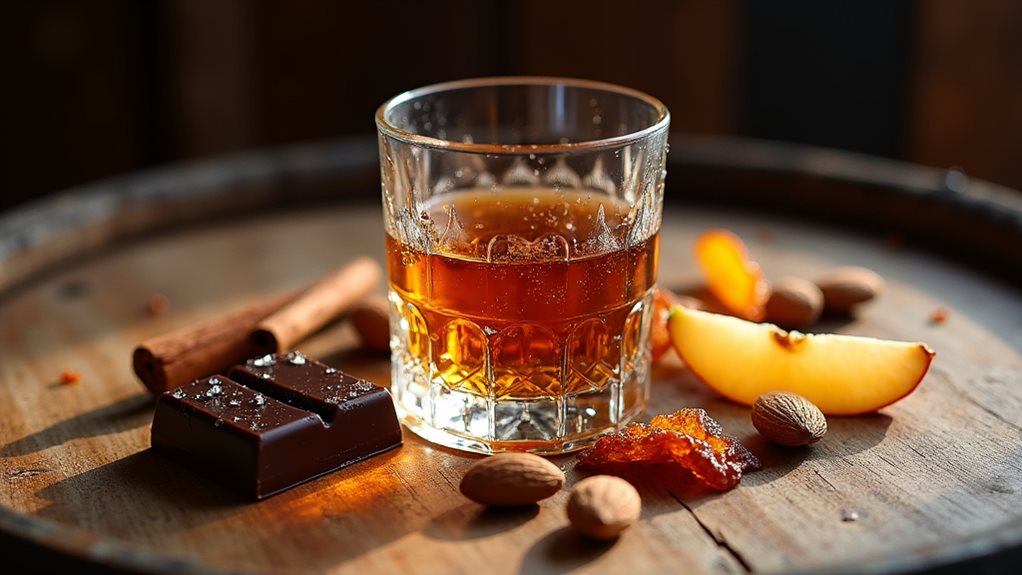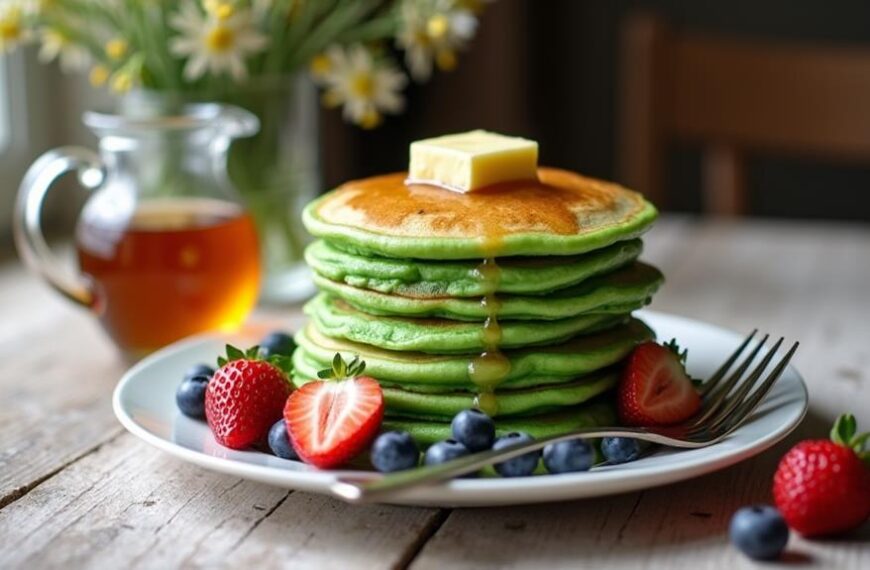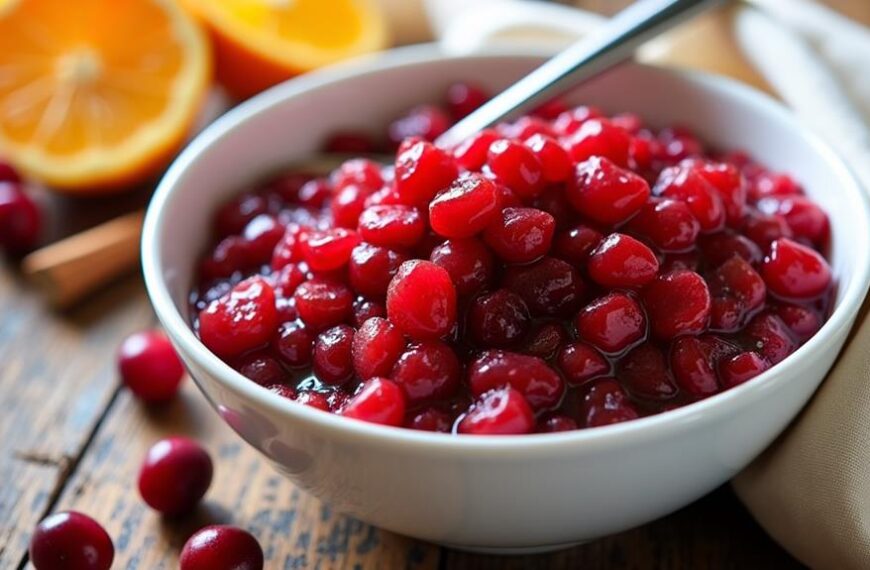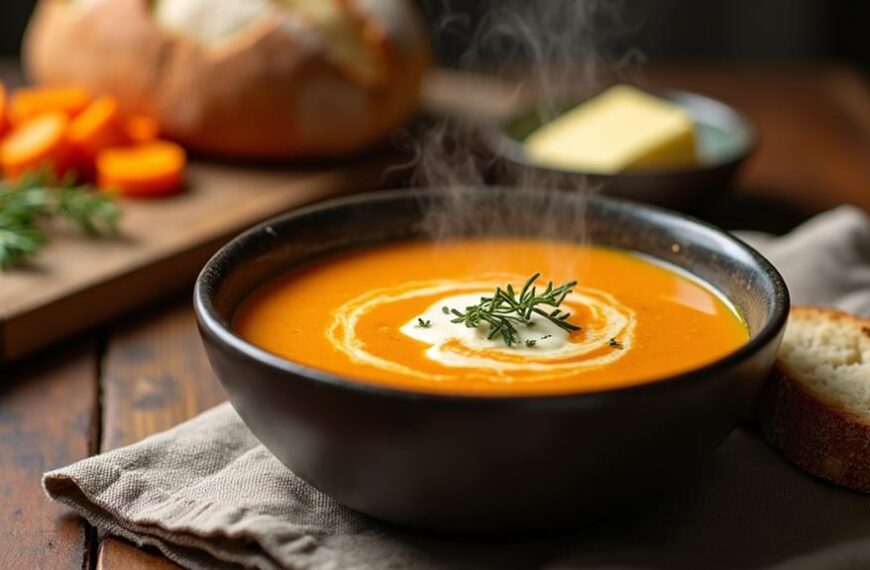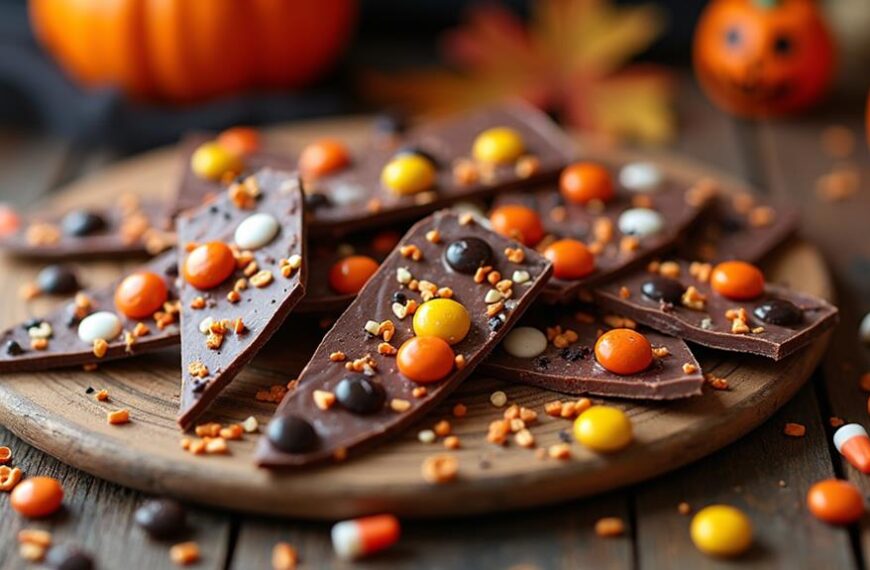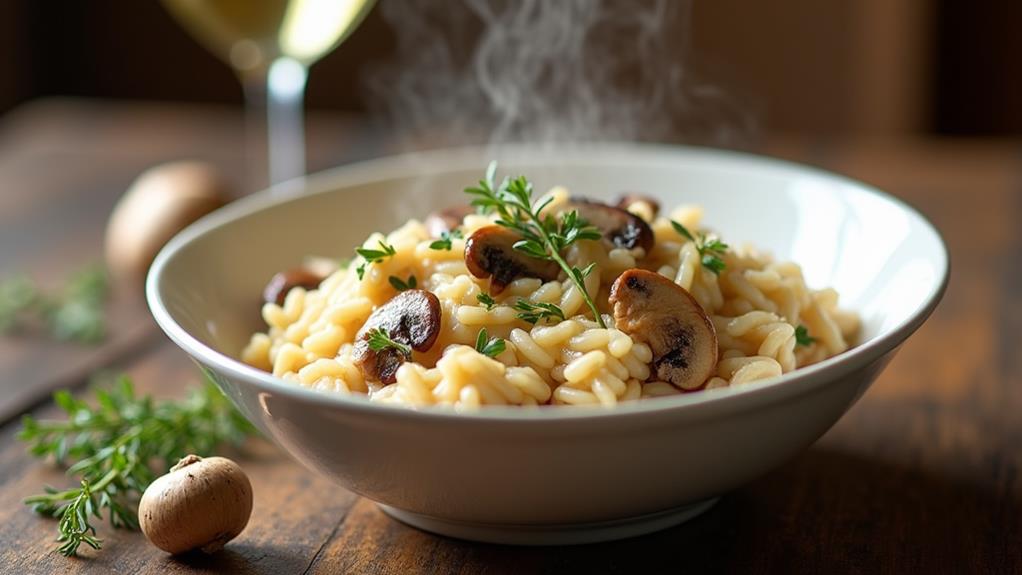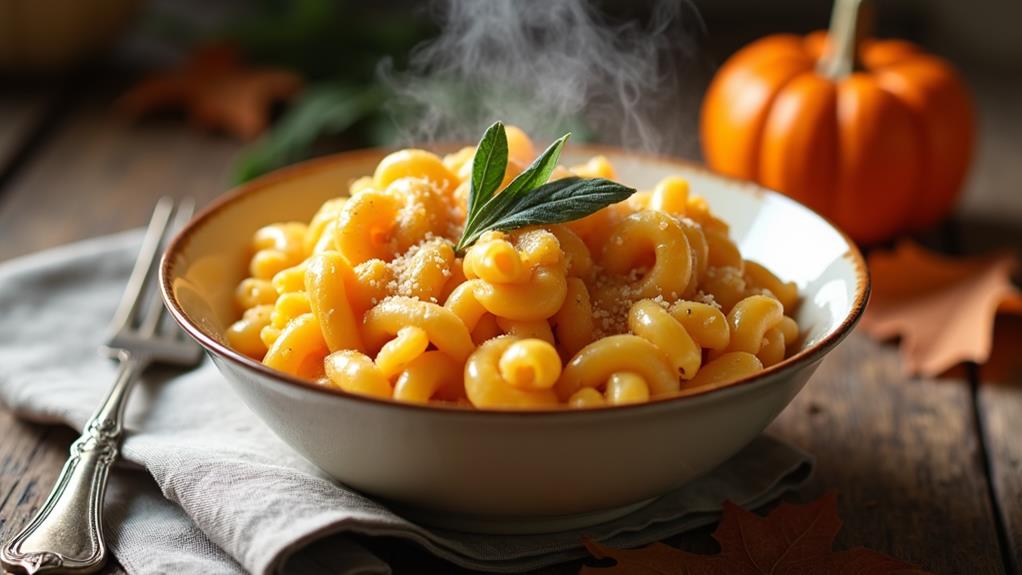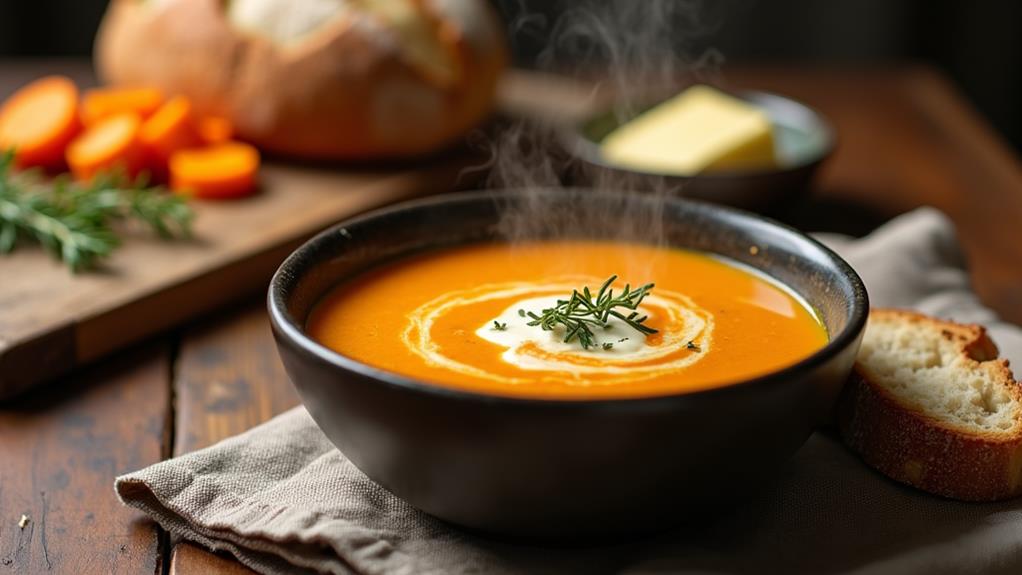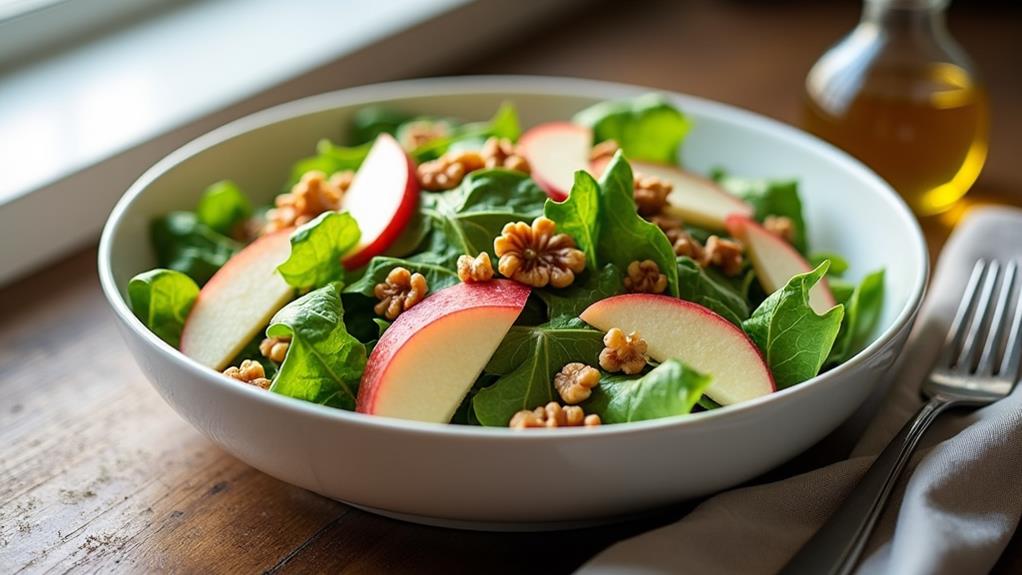Elderflower's delicate flavor pairs beautifully with fruits like berries, peaches, and citrus, enhancing its honey-sweet and floral profile. You'll find it complements gin and champagne in cocktails, while unexpected pairings include rich meats like duck and lamb. Try combining elderflower with herbs such as mint, lavender, or lemongrass for complex infusions. In desserts, it elevates lemon cakes, jellies, and ice creams. Exploring both classic and unconventional pairings will reveal elderflower's full culinary potential.
The Unique Flavor Profile of Elderflower
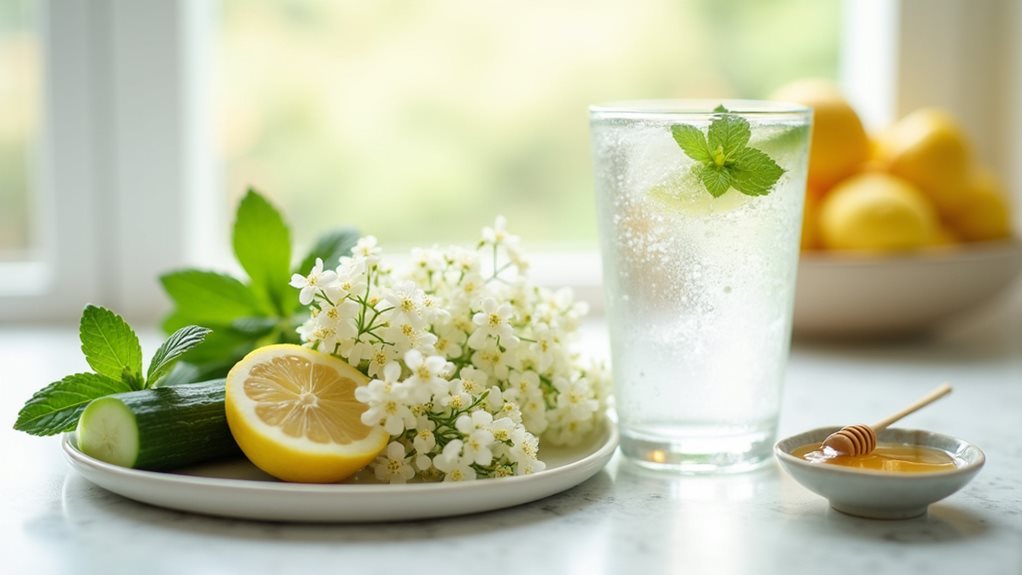
When you first encounter elderflower, you'll immediately notice its complex and multifaceted character that defies simple explanation. This botanical treasure offers a symphony of elderflower nuances that dance between sweet honey-like undertones and invigorating citrus highlights.
You'll detect distinctive floral elements reminiscent of rose, complemented by fruity notes of kumquats, pears, and lychee. The presence of 3-methyl-1-butanol contributes significantly to these fruit-forward characteristics. Many consumers describe elderflower's unique taste as a delightful blend of honey and floral notes.
What makes elderflower truly special is its floral balance—the interplay between its heady aroma of muscat grapes and vanilla with a slight bitterness that prevents it from becoming cloying.
The delicate equilibrium of elderflower's intoxicating bouquet and subtle bitter edge creates an exquisite flavor symphony that never overwhelms.
The compounds responsible for these characteristics, including cis-rose oxide and ß-damascenone, create that unmistakable profile you'll recognize in cordials, liqueurs, and desserts. This versatile flavor emerges at its peak during early summer.
Classic Fruit Pairings That Enhance Elderflower's Complexity
Discovering the perfect fruit companions for elderflower opens up a world of flavor possibilities that can transform your culinary creations.
Berries like strawberry, raspberry, and blackberry create harmonious unions with elderflower's delicate profile, each offering different levels of fruit acidity that balance the floral sweetness.
Stone fruits such as peach and apricot share elderflower's subtle floral notes, creating depth in desserts and beverages.
For brightness, citrus fruits—particularly lemon, lime, and grapefruit—cut through elderflower's sweetness while amplifying its complexity.
Consider seasonal variations when planning your pairings; summer berries work brilliantly in invigorating cordials, while autumn pears create comforting warmth in baked goods. The chart encourages experimenting with unexpected pairings to discover unique flavor combinations that enhance your cooking and baking experiences.
Tropical options like passionfruit and lychee introduce exotic elements that elevate elderflower's natural essence in more adventurous applications.
Noma's world-renowned dessert incorporating strawberries and elderflower demonstrates the balanced sweetness that allows each ingredient's character to be fully appreciated.
Unexpected Savory Combinations With Elderflower
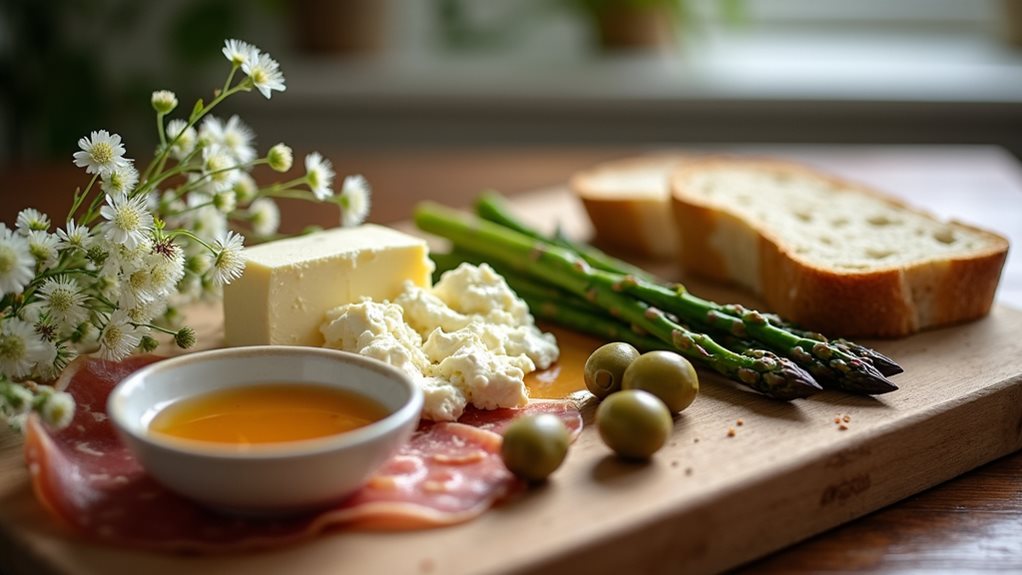
Most cooks limit elderflower to sweet applications, yet this delicate floral ingredient shines just as brilliantly in savory dishes where you'd least expect it. Your elderflower flavor explorations can transform ordinary meals into extraordinary culinary experiences.
Try pairing it with lamb or duck breast, where the floral notes beautifully complement rich meats. Even vegetables like kale and leek take on new dimensions when enhanced with elderflower's subtle complexity. The freshly harvested flower heads are best picked when fully opened without any signs of wilting or browning for optimal flavor.
Elderflower's delicate floral essence elevates both gamey meats and earthy vegetables into sophisticated culinary creations worth savoring.
For cheese boards with impact, drizzle elderflower syrup over Gruyère or creamy goat cheese. Herbs like thyme and rosemary create balanced flavor profiles when combined with elderflower. Consider preparing a fresh cocktail with elderflower liqueur like St. Germain to accompany your savory dishes.
You'll find inspiration in global cuisines too—incorporate elderflower into Korean marinades, Japanese fish preparations, or Middle Eastern tagines for unexpected savory dishes that will surprise and delight your guests.
Crafting Elderflower Cocktails: Complementary Spirits and Ingredients
Elderflower's delicate, floral profile creates a perfect foundation for sophisticated cocktails that can transform your home bartending experience.
When mixing elderflower liqueur cocktails, you'll find that gin enhances the floral notes beautifully, while vodka allows the elderflower to take center stage without competition.
For a revitalizing approach, combine St-Germain with champagne and vodka, or try the unexpected pairing of elderflower with tequila for a spicy margarita variation. Giffard elderflower liqueur offers a drier alternative to St-Germain for those preferring less sweetness in their drinks.
Your mixer selection matters too—tonic water provides bitterness that balances sweetness, while fresh citrus adds necessary acidity. Sparkling water provides effervescent refreshment while highlighting the natural flavors of elderflower.
Elevate your presentation with thoughtful elderflower garnish ideas: floating sage leaves add aromatic complexity, mint brings cooling freshness, and edible flowers create visual impact that complements the cocktail's botanical essence.
Botanical and Herb Pairings for Elderflower Infusions
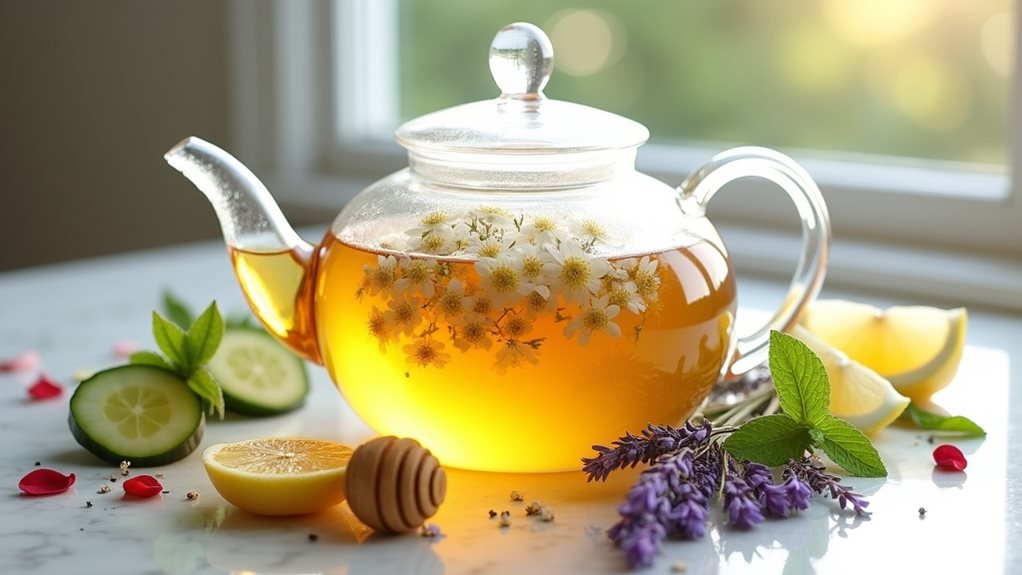
When you venture into creating elderflower infusions, selecting the right botanical partners can transform a simple drink into a multisensory experience.
For a revitalizing herbal infusion, try pairing elderflower with lavender for a calming blend, or combine it with lemongrass to enhance its natural citrus floral notes.
Mint leaves offer a cooling counterpoint, while ginger provides warming spice that beautifully contrasts elderflower's delicate profile.
For immune support, consider echinacea and boneset companions during cold season. The combination works exceptionally well to enhance immunity during respiratory conditions like flu and bronchitis.
Green or white tea serves as an excellent base, allowing elderflower's subtle character to shine through.
You'll find cucumber adds crisp vitality, while rosemary and basil introduce aromatic complexity. These pairings undergo a gentle lactic acid fermentation when steeped together, creating more complex flavor profiles and potential probiotic benefits.
Don't overlook yarrow and blue vervain if you're crafting a fever-reducing infusion with therapeutic benefits.
Citrus fruits like lemon, orange, and lime create refreshing cocktails when mixed with elderflower and gin for a seasonal garden-inspired drink.
Sweet Applications: Desserts and Baked Goods With Elderflower
The delicate floral notes of elderflower transform ordinary desserts into extraordinary culinary experiences that capture the essence of summer.
You'll find this versatile ingredient elevates classics like lemon cakes when incorporated into batters and buttercream frostings. Try soaking almond sponges with elderflower cordial before layering with lemon curd for a memorable treat.
Elderflower jellies offer a revitalizing finale to summer meals, especially when paired with berries or kiwi.
For a show-stopping dessert, consider creating pavlovas topped with elderflower-infused cream, gooseberries, and pistachios. The subtle sweetness works beautifully in ice creams and sorbets, where it complements fruits like strawberry and pear.
When developing your own elderflower cakes, remember that honey enhances its natural floral character while citrus provides bright contrast.
Frequently Asked Questions
Can Elderflower Be Foraged Safely, and How Do You Identify It?
Yes, you can safely forage elderflower when you identify its creamy-white umbel clusters, serrated compound leaves, and sweet fragrance. Always harvest away from polluted areas and use scissors to cut only the flower heads.
How Long Does Homemade Elderflower Cordial Last Once Prepared?
Like a clock ticking away summer's essence, your homemade elderflower cordial lasts about six weeks refrigerated. You'll get three months with citric acid added. For maximum shelf life, try freezing—it'll keep fresh for a year!
Are There Any Allergies or Contraindications Associated With Elderflower Consumption?
While elderflower allergies are rare, you should exercise caution if you have plant sensitivities. Watch for elderflower contraindications like interactions with diabetes medications and avoid during pregnancy or before surgery for maximum safety.
How Do Seasonal Variations Affect Elderflower's Flavor Profile?
Like a chameleon of summer, elderflower transforms through the seasons. You'll notice early blooms offer delicate sweetness, while later harvests develop complexity. Weather, sunlight, and regional factors create distinctive seasonal influences on flavor nuances.
Can Dried Elderflowers Substitute for Fresh in Recipes and Cocktails?
Yes, you can use dried elderflowers instead of fresh ones. They'll deliver more concentrated flavor intensity, so use about two-thirds the amount. They're perfect for year-round creativity when fresh blossoms aren't available.
Final Thoughts
You'll find elderflower's delicate, floral essence transforms ordinary recipes into extraordinary culinary experiences when paired thoughtfully. As you experiment with these combinations, you might discover your strawberry tart with elderflower glaze coincidentally impresses guests the same weekend your neighbor brings over homemade elderflower-cucumber infused gin. Whether in cocktails, desserts, or savory dishes, elderflower's versatility invites endless creative possibilities in your kitchen.

